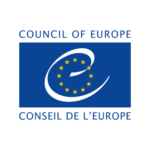Monitoring of Media Coverage of Elections: Toolkit for civil society organisations
Year of production: 2020
Monitoring of Media Coverage of Elections: Toolkit for civil society organisations
The aim of the toolkit is to provide a methodology to deal with common issues that may be addressed by pre-election monitoring. The intention is to provide tools that would allow monitors to determine whether broadcasters’ coverage of election campaigns was balanced and fair and if broadcasters exercised balance in their coverage of contentious political and other issues.
This toolkit complements the work of Council of Europe, as the organisation has addressed the issue of media and elections in various standard-setting instruments, including Recommendation No. R (99) 15 of the Committee of Ministers to member states on measures concerning media coverage of election campaigns; Recommendation CM/Rec(2007)15 of the Committee of Ministers to member states on measures concerning media coverage of election campaigns; and practical guidelines like the Code of good practice in electoral matters drawn up by the European Commission for Democracy through Law (Venice Commission), the Guidelines on Media Analysis During Election Observation Missions issued jointly by the Venice Commission and the OSCE Office for Democratic Institutions and Human Rights (OSCE/ODIHR), or more recently PACE Resolution 2254 (2019) on Media freedom as a condition for democratic elections.
The methodologies described in the toolkit do not presuppose the use of any particular computer software for storing and analysing the data gathered but could be used in conjunction with widely available spreadsheet or database software (such as Microsoft Excel or Access), with more sophisticated analysis carried out through a specialised statistical package, if required.





